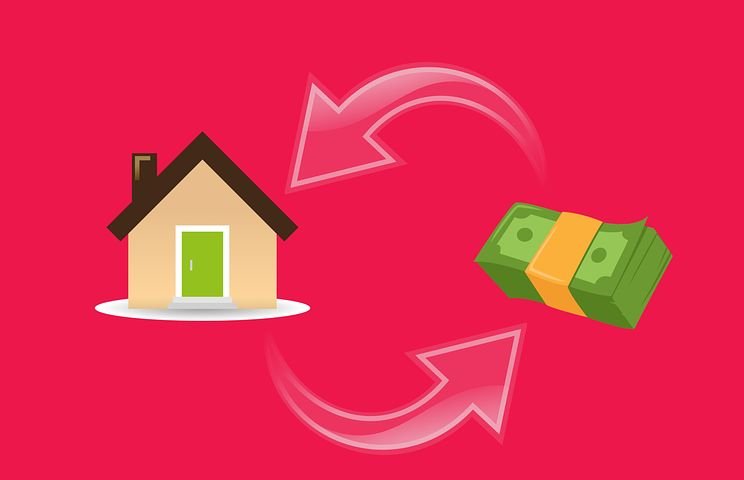
The process of raising money by selling a house in fractions through a security token typically involves the following steps:
Preparation:
- Before you can sell your house in fractions, you will need to work with a securities attorney to ensure that your offering complies with all applicable securities laws.
- This may include registering your offering with the Securities and Exchange Commission (SEC) and providing potential investors with a detailed offering memorandum.
Tokenization:
- The next step is to tokenize your house, which involves creating a digital token that represents an ownership stake in the property. - This can be done using blockchain technology, which allows for the creation of digital assets that can be bought, sold, and traded like traditional securities.
Marketing:
- Once your offering is registered and your property is tokenized, you will need to market your offering to potential investors.
- This may involve creating a website, reaching out to potential investors, and promoting your offering through various social media channels.
Closing:
- Once you have identified interested investors and completed the necessary paperwork, you will finalize the sale of your house in fractions through security tokens.
Trading:
- After the closing, the security tokens will be traded on a security token exchange, where they can be bought and sold like any other security.
Last Words
- It's important to note that this process is highly complex and requires compliance with various regulations.
- Also, it's a relatively new concept and not yet widely adopted, and it's important to consult with professionals before proceeding.
- Do your own research, and be careful.
@shortsegments

🙄IPhone photo by shortsegments
Title picture source
Title: Sell your home as a security token offering
Posted Using LeoFinance Beta
This post has been manually curated by @bhattg from Indiaunited community. Join us on our Discord Server.
Do you know that you can earn a passive income by delegating your Leo power to @india-leo account? We share 100 % of the curation rewards with the delegators.
100% of the rewards from this comment goes to the curator for their manual curation efforts. Please encourage the curator @bhattg by upvoting this comment and support the community by voting the posts made by @indiaunited.
Thank you for the curation.
Posted Using LeoFinance Beta
Certainly interesting, but seems like it would open up a world of complexity in terms of the rights of token holders.
Who gets to actually live in the house? Or would this be intended purely as financing for rental properties?
Good Questions.
The asset is legally tied to the token by the tokenization process.
Token holder rights are defined by the smart contract and described in the security token offering where the tokens are sold. Since these are registered securities, the token holders are protected by securities laws in each country.
An example would be that the security token offering defines the rights of token holders in terms of price appreciation and earnings from the property in terms of rental income. If you own 1 of 1000 tokens you are entilled to 1/1000th of all price appreciation, in addition to return of your capitol investment, plus 1/1000 of any income derived from the asset/property such as rents.
The lower cost also allows diversification of investments lowering your risk.
If you are the home owner you simply need to retain 51% of the tokens to maintain control of the property, and make sure the security token offering states you retain control, and then to entice buyers you will need to provide income so there is a ROI on the investment without selling.
So from the original homeowner's perspective, it really sounds more like a fancy sort of home equity loan than an actual way to sell your house.
I guess my "stumbling block" here is that a house — as a tangible thing — isn't divisible; it's always going to be "one house." As such, only one person/family unit can derive direct utility from it... everything else is indirect utility, such as sharing in capital appreciation.
I guess it beats paying interest to a bank...
I think you are right.
It is a way to sell the home in pieces to a large number of investors, who don't actually get a house, but instead get a portion of it's appreciation.
One of the advantages of this larger number of investors is that it increases the size of the market for expensive items, and thus allows the owner access to the equity, as in cash, of an asset that is hard to sell.
For example, a piece of art or a mansion. The market for such things is small, because they are not essential, as in the art, or they are expensive, as in the mansion. But if you can sell just a fraction of the art or the mansion, you lower the entry price to investing in this item, And that is how you increase the "market size" or number of investors who can afford it.
Second, you are correct it eliminates the bank, but does include another middleman, the smart contract, and the tokenizer. One of the advantages of the tokenization for developers of a new property or renovation of an old property is that most bank development loans have a fixed date for repayment of the entire loan. And it must be repaid regardless of market conditions, so real estate projects which begin during a bull real estate market and end during a bear real estate market will sometimes barely be able to sell the project units at a price covering their expenses. This happens because the bank wants their money back on that date, regardless of the market. The bank invests money and wants it's money back, The bank isn''t investing in real estate, they are investing in the developer and their return on investment is just the repayment according to the terms.
But with a security token, both the developer and then investor are invested in the real estate. So it is in the best interest of the developers and the security token holders to wait until the market recovers to maximize their profits. It's more of a shared investment, then just the bank loan. And in the case of renovations, they sometimes improve the assessed value of the property right away, and the cash flow, resulting in increased earnings for token holders after renovations then during renovations, which is a great situation, and then if the property is refinance or sold, the token holders get a nice pay day.
Posted Using LeoFinance Beta